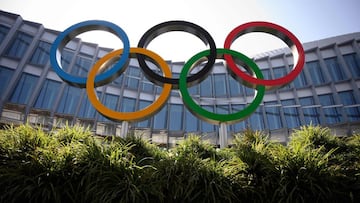Why is the IOC losing its primary sponsorship partners?
Japanese company Bridgestone announced on Tuesday that it will not renew its sponsorship deal with the Olympic and Paralympic Games when it expires this year.


It was already known that the sponsorships of Toyota Motors and Panasonic Holdings would not be extended either.
However, after Toyota and Panasonic, another Japanese company, the tire manufacturer Bridgestone announced that it would not extend its sponsorship after the current contract expiration, which runs until the end of this year. The company emphasized that it still believes in the International Olympic Committee’s vision of building a better world through sports but does not want to extend the contract.
Olympic marketing in Japan - now Bridgestone elects not to renew TOP, meaning 1st time Olympics has no Japanese partners.
— Michael.R Payne (@MichaelRPayne1) October 1, 2024
Have Japanese business fallen out of love with Olympics or more likely Olympics caught in cross fire of Govt political & Dentsu scandals. Me thinks latter!
The Japanese powerhouse Panasonic recently announced, almost at the same time as Toyota, its departure from Olympic investment, citing “management considerations.” Panasonic has been an Olympic sponsor since 1987 and expanded its support to the Paralympics in 2014. However, it has decided not to renew its contract, which expires in December.
Bridgestone has been an Olympic Games partner since 2014. Thus, the International Olympic Committee will be without three main sponsors, all of whom are Japanese.
Toyota is the only of the companies to object to IOC policy
Toyota has publicly announced dissatisfaction with how the IOC distributes sponsorship funds, stating that the money is not being used effectively to support athletes and promote sports. As a result, Toyota has decided to end its nearly decade-long Olympic sponsorship, citing the increasingly political nature of the Games and the company’s belief that athletes have been sidelined.
Related stories
Akio Toyoda, the company’s president, expressed apparent dissatisfaction with the direction in which the Games have evolved.: “Toyota was unhappy with how the IOC used the sponsorship money; it wasn’t effectively allocated to support athletes or promote sport. For a while now, I’ve wondered whether the event truly puts athletes first.”
Bridgestone did not go public with similar statements—precisely the opposite. Bridgestone has announced a redistribution and change of strategy for the brand, which wants to focus more on motorsport. The communications department of the tree manufacturer surely wrote a statement that didn’t want to leave a closed door behind, but the absence of three big Japanese sponsors will surely make a mess in the IOC Lausanne headquarters.

